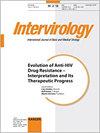氯化十六烷基吡啶对SARS-CoV-2的体外消毒效果。
IF 1.8
4区 医学
Q3 VIROLOGY
引用次数: 1
摘要
新型冠状病毒(新冠肺炎或2019-nCoV)是一种呼吸道病毒,可存在于患者的口腔和唾液中,并通过气溶胶扩散传播。因此,口腔医院和口腔科已成为感染风险较高的环境。因此,能够有效灭活病毒的口服消毒剂已成为一个高度活跃的研究领域。十六烷基氯化吡啶、聚维酮碘和其他常见的口腔消毒剂是口腔医院的天然首选。因此,本研究在体外研究了十六烷基氯化吡啶对严重急性呼吸系统综合征冠状病毒2型的抑制作用。使用感染严重急性呼吸系统综合征冠状病毒2型的Vero细胞来确定消毒效果;使用CCK-8方法测定细胞毒性,并通过实时PCR测定病毒载量。结果表明,十六烷基氯化吡啶在0.0125-0.05mg/mL浓度范围内对Vero细胞无明显的细胞毒作用。体外实验表明,在0.1mg/mL或以上的浓度下,氯化十六烷基吡啶鎓在作用2分钟时显著抑制病毒。因此,该结果为十六烷基氯化吡啶在口腔医院的应用提供了实验支持。本文章由计算机程序翻译,如有差异,请以英文原文为准。
Disinfection effect of hexadecyl pyridinium chloride on SARS-CoV-2 in vitro.
The novel coronavirus (COVID-19 or 2019-nCoV) is a respiratory virus that can exist in the mouth and saliva of patients and spreads through aerosol dispersion. Therefore, stomatological hospitals and departments have become high-infection-risk environments. Accordingly, oral disinfectants that can effectively inactivate the virus have become a highly active area of research. Hexadecyl pyridinium chloride, povidone-iodine, and other common oral disinfectants are the natural primary choices for stomatological hospitals. Therefore, this study investigated the inhibitory effect of hexadecyl pyridinium chloride on SARS-CoV-2 in vitro. Vero cells infected with SARS-CoV-2 were used to determine the disinfection effect; the CCK-8 method was used to determine cytotoxicity, and viral load was determined by real-time PCR. The results showed that hexadecyl pyridinium chloride has no obvious cytotoxic effect on Vero cells in the concentration range 0.0125-0.05 mg/mL. The in vitro experiments showed that hexadecyl pyridinium chloride significantly inhibits the virus at concentrations of 0.1 mg/mL or above at 2 min of action. Thus, the results provide experimental support for the use of hexadecyl pyridinium chloride in stomatological hospitals.
求助全文
通过发布文献求助,成功后即可免费获取论文全文。
去求助
来源期刊

Intervirology
医学-病毒学
CiteScore
5.40
自引率
0.00%
发文量
13
审稿时长
6-12 weeks
期刊介绍:
''Intervirology'' covers progress in both basic and clinical virus research, and aims to provide a forum for the various disciplines within virology. Issues publishing original papers alternate with thematic issues, focusing on clearly defined topics. This thematic concentration serves to make timely reviews, research reports and controversy easily accessible to both specialists in the field and those who want to keep track of the latest developments outside their own area of interest. In addition to original papers, regular issues publish short communications and letters to the editor to provide readers with a forum for the exchange of ideas and comments. The scope encompasses work on the molecular biology of human and animal viruses, including genome organization and regulation, and the structure and function of viral proteins. The pathogenesis, immunology, diagnosis, epidemiology, prophylaxis and therapy of viral diseases are considered.
 求助内容:
求助内容: 应助结果提醒方式:
应助结果提醒方式:


